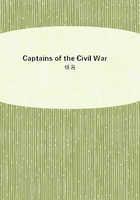
第80章 GRANT ATTACKS THE FRONT: 1864(6)
The day after--the fateful third of June--the two sides closed in death-grips at Cold Harbor.
On this, the thirtieth day of Grant's campaign of stern attrition and would-be-smashing hammerstrokes at Lee, these were his orders for attack: "The moment it becomes certain that an assault cannot succeed, suspend the offensive. But when one does succeed, push it vigorously, and, if necessary, pile in troops at the successful point from wherever they can be taken." The trouble was that Grant was two days late in carrying on the battle so well begun by Sheridan, that Warren's corps was two miles off and entirely disconnected, and that the three remaining corps formed three parts and no whole when the stress of action came.
At dawn Meade's Army of the Potomac (less Warren's corps) began to take post for the grand attack that some, more sanguine than reflecting, hoped would win the war. When it was light the guns burst out in furious defiance, each side's artillery trying to beat the other's down before the crisis of the infantry assault.
There was no maneuvering. Each one of Meade's three corps--Hancock's, Wright's, and Smith's (brought over from Butler's command)--marched straight to its front. This led them apart, on diverging lines, and so exposed their flanks as well as their fronts to enemy fire. But though each corps thought its neighbor wrong to uncover its flanks, and the true cause was not discovered till compass bearings were afterwards compared, yet each went on undaunted, gaining momentum with every step, and gathering itself together for the final charge.
Then, surging like great storm-blown waves, the blue lines broke against Lee's iron front. In every gallant case there was the same wild cresting of the wave, the same terrific crash, the same adventurous tongues of blue that darted up as far as they could go alive, the same anguishing recession from the fatal mark, and the same agonizing wreckage left behind. In Hancock's corps the crisis passed in just eight minutes. But in those eight dire minutes eight colonels died while leading their regiments on to a foredoomed defeat. One of these eight, James P. McMahon of New York, alone among his dauntless fellows, actually reached the Confederate lines, and, catching the colors from their stricken bearer, waved them one moment above the parapet before he fell.
Flesh and blood could do no more. Under the withering fire and crossfire of Lee's unshaken front the beaten corps went back, re-formed, and waited. They had not long to wait; for Grant was set on swinging his three hammers for three more blows at least.
So again the three assaults were separately made on the one impregnable front; and again the waves receded, leaving a second mass of agonizing wreckage with the first. Yet even this was not enough for Grant, who once more renewed his orders. These orders quickly ran their usual course, from the army to the different corps, from each corps to its own divisions, and from divisions to brigades. But not a single unit stirred. From the generals to the "thinking bayonets" every soldier knew the limit had been reached. Officially the order was obeyed by a front-line fire of musketry, as well as by the staunch artillery, which again gave its infantry the comfort of the guns. But that was all.
Thus ended the battle of Cold Harbor, the last pitched battle on Virginian soil. Grant reported it in three short sentences; and afterwards referred to it in these other three. "I have always regretted that the last assault [i.e., the whole battle of the third of June] was ever made. No advantage whatever was gained to compensate for the heavy loss. Indeed, the advantages, other than those of relative losses, were on the Confederate side." Even these, however, were also on the Confederate side, as Grant lost nearly thirteen thousand, while Lee lost less than eighteen hundred. Cold Harbor undoubtedly lowered Union morale, both at the front and all through the loyal North. It encouraged the Peace Party, revived Confederate hopes, and shook the army's faith in Grant's commandership. Martin McMahon, a Union general, writing many years after the event, of which he was a most competent witness, said: "It was the dreary, dismal, bloody, ineffective close of the lieutenant-general's first campaign with the Army of the Potomac."Cold Harbor caused a change of plan. Reporting two days later Grant said: "I now find, after thirty days of trial, the enemy deems it of the first importance to run no risks with the armies they now have. Without a greater sacrifice of human life than Iam willing to make all cannot be accomplished that I had designed outside of the city [of Richmond]. I have therefore resolved upon the following plan," which, in one word, involved a complete change from a series of pitched battles to a long-drawn open siege.
The battles lasted thirty days, the siege three hundred.
Therefore, from this time on for the next ten months, Lee had to keep his living shield between Grant's main body and the last great stronghold of the fighting South, while the rising tide of Northern force, commanding all the sea and an ever-increasing portion of the land, beat ceaselessly against his front and flanks, threw out destroying arms against his ever-diminishing sources of supply, and wore the starving shield itself down to the very bone.